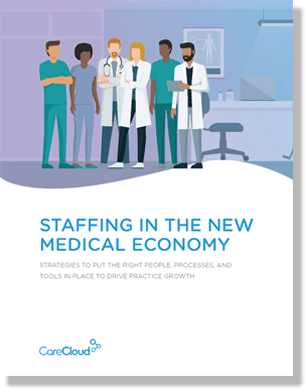The fusion of medicine and data is nothing new. Doctors have been using quantitative information to improve healthcare outcomes for decades.
In fact, the American Board of Medical Specialties (ABMS) chose to formally recognize clinical informatics as a certified subspecialty just last year.
PYP sat down with the American Medical Informatics Association’s (AMIA) Course Director Bill Hersh to better understand this increasingly popular certification program.
The AMIA aims to transform health care through science, education, and the practice of informatics. AMIA’s Clinical Informatics Board Review Course provides American Board of Medical Specialties board-certified physicians with the resources to become certified in clinical informatics.
Their first official face-to-face course was offered two weeks ago.
Dr. Hersh is in charge of the clinical informatics board review program at the AMIA and has written several papers describing the field. He also maintains the Informatics Professor blog, which focuses on informatics related topics, and heads the Department of Medical Informatics and Clinical Epidemiology at Oregon Health & Science University.
In your own words, could you describe clinical informatics certification?
Clinical informatics has been approved to be a medical subspecialty for physicians who are board-certified in any specialty (such as internal medicine, radiology, pathology, psychiatry, surgery, etc.). Because it is a subspecialty, they must be board-certified in a primary specialty first. The idea behind certification in the clinical informatics subspecialty is to recognize the professional work that is now done in clinical informatics, particularly in providing the interface between clinicians and IT staff in health care organizations.
It is important to remember that clinical informatics and the larger biomedical informatics have been around for a long time. Certification is relatively new to this field, even though professionals have been working in the field for several decades. With the growth of informatics applications, such as electronic health records, personal health records, telemedicine, and other areas, there is growing important to have a workforce that is well-trained and professionally competent to lead the use of this technology.
Should a physician consider clinical informatics certification for his or her private practice?
This certification is aimed at physicians who “practice” clinical informatics professionally. A physician who is in private practice, and spends most or all of their time indirect patient care, is probably not a candidate for this certification. While modern physicians certainly need to be skilled in the tools of clinical informatics as they apply to patient care, the certified clinical informatician is playing more of a professional, leadership, and/or academic role in informatics.
What benefits could a certification in clinical informatics offer to smaller private practices?
It is not clear that smaller practices really need this, although they do need to be familiar and facile with clinical informatics to use tools like electronic health records, knowledge resources, telemedicine, and others to practice in an era of accountable care organizations, Internet-savvy, and information-savvy patients, and precision medicine. Every 21st-century physician needs to have basic informatics skills. But clinical informatics certification is more for physicians who will spend at least a quarter or more of their professional time in the practice of clinical informatics.
Do patients benefit from an increase in clinical informatics certifications?
Having some certification in clinical informatics will provide expertise in using informatics to improve patient care.
How long does it take to complete a CIC program?
The most common pathway to obtain formal training in clinical informatics at this time is in a graduate-level program that leads to a master’s degree or a certificate. There are many programs that are available online, including our program at Oregon Health & Science University. After five years (in 2018), the “grandfathering” era of clinical informatics will end, after which time one will need to do a formal two-year fellowship in clinical informatics to be eligible for certification.
What career opportunities does a non-physician have with a certification in clinical informatics?
Clinical informatics is by no means only for physicians. In our graduate program, about 30% of students and graduates are physicians, with the rest coming from other health professions, information technology professions, and a wide variety of other fields. The job outlook for those trained in clinical informatics is strong.
At the present time, the only other area for which there is certification in clinical informatics is in nursing informatics. Over the next few years, however, there will likely be the certification for professionals of many backgrounds in clinical informatics. The leading professional group for this field is the American Medical Informatics Association and is a good group in which to become involved.
With nurses averaging an additional $15,000 per year for having their informatics certification, this seems like an option worth considering for many healthcare professionals. How do you see clinical informatics improving healthcare outcomes? Let us know in the comments sections below.



